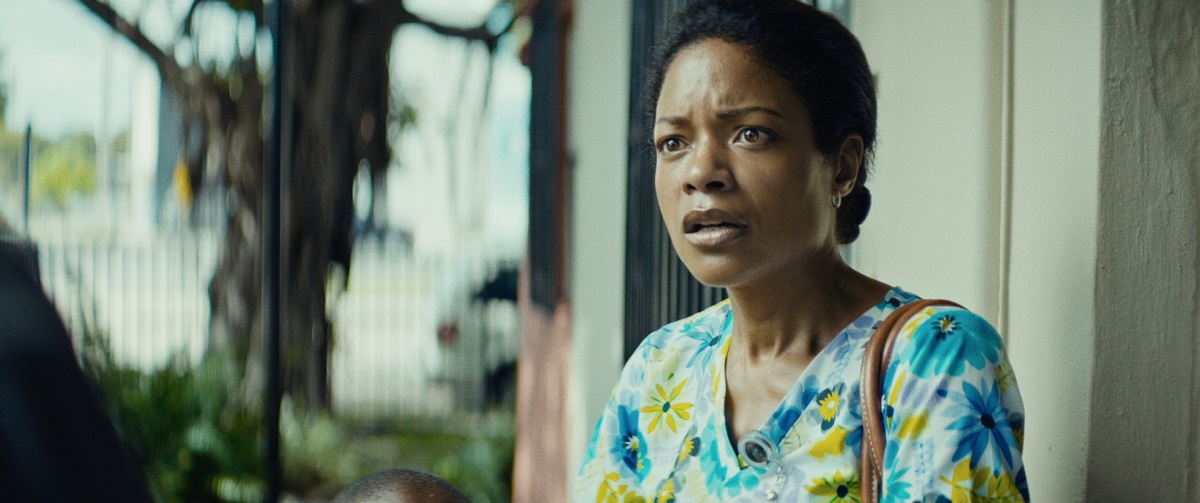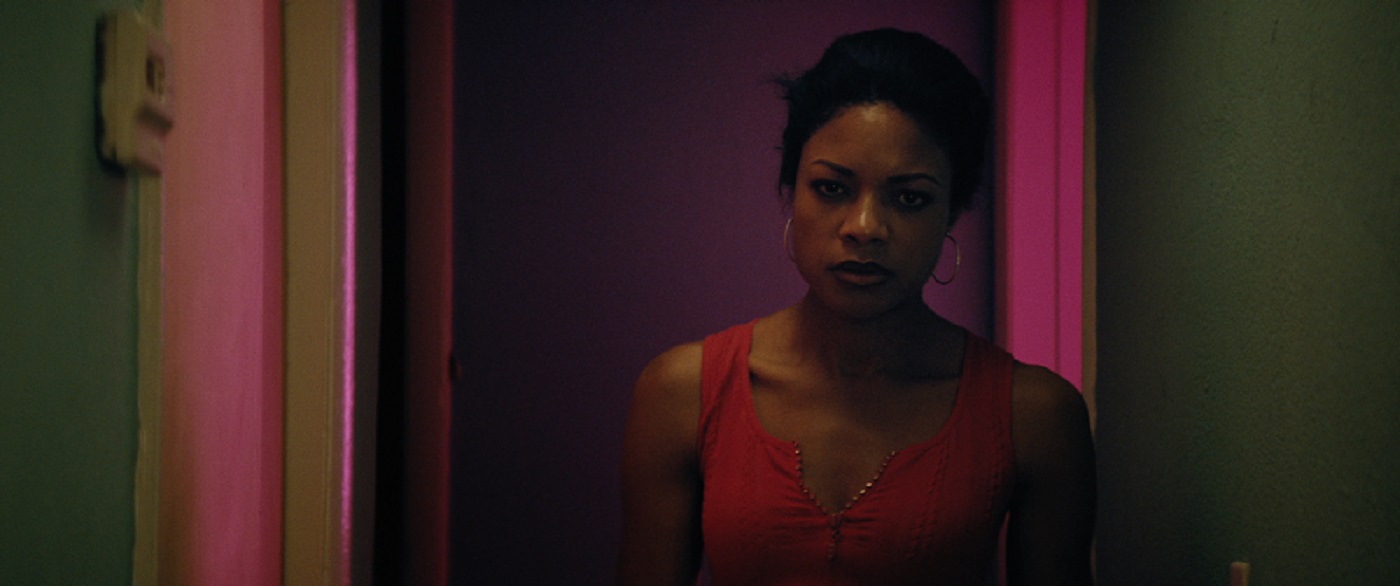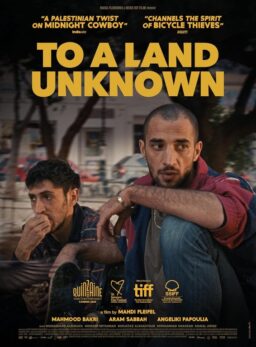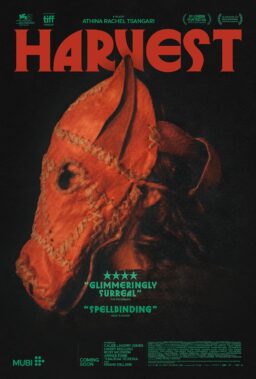Barry Jenkins’ “Moonlight” has become one of the most discussed films of 2016, earning nothing but critical raves since its Telluride premiere. Many of its most effusive reviews have cited the work of Naomie Harris as Paula, the drug-addicted mother of the protagonist, who we see at three separate points in his life. Harris does an astonishing job with only a few scenes, filmed over only three days. The versatile star of movies like “28 Days Later,” “Skyfall” and “Pirates of the Caribbean: Dead Man’s Chest” sat down with us recently when “Moonlight” played the Chicago International Film Festival to discuss craft, addiction and how she picks roles.
I want to start with the difficulty of playing a character in different parts of her life. How much, as an actress, do you fill in?
All of it.
All of it? So are you big on backstory in general?
Yeah. For me, backstory is the King of Everything. I would not play a role unless I had figured out the entire backstory for my character. I think that’s the most important thing you can do as an actor. And that’s what I use my time for when I’m prepping for a role. It’s all about backstory. One of the first things you have to do, especially for a character like this—you know, I was playing a character who was very culturally different from me, so I had to get the accent. The accent is one of those things you work very hard on and then you have to forget it. You have to let it go. Your sole focus has to be on the backstory—knowing this character inside and out.
Is that collaborative with [director Barry Jenkins] or is that something you do on your own?
No. It’s something you do on your own. You use the script. You’re like a detective with the script. “She says this happened at this age. She says she doesn’t like this. Why? How?” I went to university and studied Social and Political Sciences, which doesn’t seem to have any connection to this world of film. But actually it really does because it’s all about how is the individual formulated. I apply those exact same questions when I’m creating a character.
Did you do any research into addiction?
The biggest resource for me was YouTube. It’s really amazing. It revealed things that I couldn’t have found myself. Someone with a camera and iPhone who goes on to the street and starts speaking to addicts in Miami. I wasn’t in Miami. I couldn’t do that. There were all kinds of amazing documentaries and snippets of interviews that I could find. I just used that as a tool. I was trying to find out what it means to be an addict. I’m someone who’s very clean-living. I don’t drink. I don’t smoke. So, how am I going to access this world?
I’m always fascinated by things that change the form of acting. That’s an opportunity through YouTube that wasn’t always there. Someone playing this role a generation ago would have had to call centers or shelters.
You’re right. That’s true.
Has any of the response to “Moonlight” been overwhelming?
You know what’s funny? You don’t really get a sense … I get a sense that people really love it. Especially at festivals. Like Toronto. It’s crazy. But now that we’re on this crazy tour and in a different city every couple days it’s hard to gauge what’s happening. I got the numbers about opening weekend and the per screen average and how incredible that is but you’re not seeing it, you’re just hearing it. You’re not out there. It’s extraordinary and it’s wonderful. I really love the model of filmmaking that A24 and Plan B are promoting, which is you invest in a filmmaker and you believe in their vision and you give them the resources to be able to create, and then you just allow them the freedom to find their own voice. That’s when you get really personal and authentic and fascinating stories like “Moonlight.”
And then they have the ability to get it to an audience.
Yes. You’re right. You’re right.
What are your expectations when you’re making a film like this? There are “known quantity” films like “Pirates of the Caribbean: Dead Man’s Chest,” which you know will be released in 4,000 theaters …
You don’t though. You don’t. That’s the interesting thing. I have been a part of movies where there were very high expectations and very big budgets and they haven’t hit. You don’t really know. You can never rely on anything. You’re right that nobody had these kind of expectations for this movie at all. There’s nobody.

I just happened to see your previous role in “Our Kind of Traitor” and it got me thinking that it couldn’t be any more different from “Moonlight.” I’m wondering how you pick roles. What’s most important to you?
What’s most important to me is that I read something and it moves me. I feel like this is a journey that I would like to go on. I can expand and grow and learn something new about myself that I didn’t know. It’s introducing me to a world I didn’t know anything about. What motivates me is growth. I’m always wanting to grow and learn. Those are the scripts that excite me.
So what did you learn here?
Massively. I had a lot of resistance to taking on the part of Paula. I’ve always said that I wanted to portray positive images of women and positive images of black women in particular. I thought playing a crack addict is not exactly a progressive type of role. What I discovered in my research is that it wasn’t just about not wanting to portray images that were stereotypical—it was actually about my own judgment about addiction. I had to confront that in my journey. I had to realize that addicts aren’t a subset of our society. They are any one of us. It’s simply as a result of what life throws at you. The more I discovered about Paula and the more I researched, I discovered that these are people with huge emotional traumas they really did not have a way of dealing with. Therefore, they were trying to reach out to something that would numb that well of emotional pain. I could no longer stand in judgment of that. To me, their choices made just as much sense as my choices. That’s how I grew.
There has to be trust in Barry too—that he’s not going to present Paula as a stereotype.
I knew that he wasn’t and that’s why I said yes to it. I was open with him and told him about these reservations. He said, ‘The truth is that this is my story. This is an amalgamation of my story and the writer’s, Tarell McCraney, and our mothers were crack addicts. I don’t want to ask you to play a stereotype but I want to tell my story, and my story involves my mother.’ I realized that he had a vested interest in insuring that she didn’t become two-dimensional.
Does that create any more pressure than normal on you to “get it right”?
It does. It does. It added some extra sense of pressure.
Good pressure.
Good pressure. Exactly. I thought, ‘You can’t phone this one in.’ This has to be truly authentic. There you have someone who’s like, ‘I lived this. I know what this was like.’ That did add pressure but I also thought I can’t think about it too much. When we were filming, Barry actually found many of the scenes that I was filming quite traumatic. I couldn’t get involved in that discussion. I couldn’t think about that too much because it would take me out of Paula. I had to stay true to her, even when it wasn’t attractive or pretty.
It shows that you’re getting at some sort of emotional truth though. How’s he different from other directors?
What I love about Barry is that—I only shot this in three days and I never ever felt like we didn’t have enough time. He always made me feel so comfortable and so relaxed. I was allowed the freedom to explore and find the scene in whatever way I see fit, which is a real luxury, and not one that most directors give you. Also, he’s really experimental. The first scene I shot was actually in the middle chapter, when I’m asking my son for drug money. I did it and he was like, ‘Can you do the whole scene to camera now?’ And then he added a line. And then this little thing. It’s very fluid with him. Because he is so free and fluid, it means that you as a performer are allowed to be free and fluid and experimental. The best work is produced when you’re playing. It’s not serious. It’s not rigid. That’s all you’re doing as an actor. It’s a crazy profession. If you’re allowed that freedom, real magic can happen. And a lot of directors can get quite rigid about how they saw it. There’s no room for anything to be discovered.
Isn’t that freedom only possible because of the backstory research?
Absolutely. If you’re not rooted, there’s no way.












